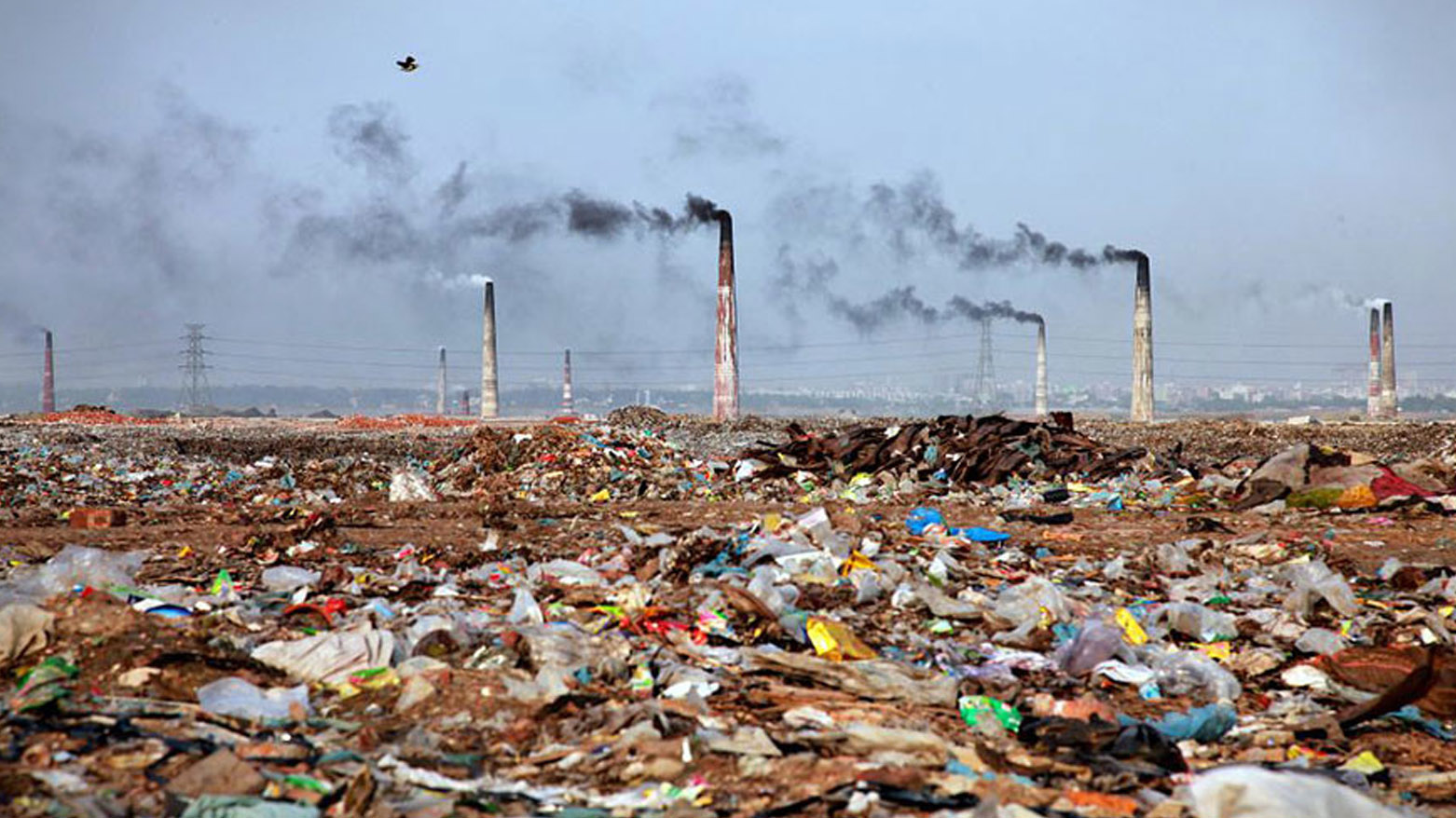No Green, No Breath: Kirkuk’s Environmental Alarm
Sherzad Hussein, a resident, said the lack of parks left people gathering in teahouses. “Look at Erbil—wherever you go, there are parks, gardens, and green spaces. You feel like spending time outdoors. Here, we don’t have that,” he said.

By Kamaran Aziz
ERBIL (Kurdistan24) – The city of Kirkuk, a Kurdistani territory outside KRG's administrative control, is suffocating—literally—as a toxic mix of pollution from oil field emissions and a severe shortage of green spaces continues to fuel a growing public health crisis.
Residents and medical experts alike warn that respiratory illnesses, particularly asthma, are on the rise in the city, where environmental neglect has turned a manageable problem into a dangerous and worsening epidemic.
With no adequate parks, gardens, or tree-lined boulevards to filter the air, Kirkuk has become a hotspot for airborne dust and pollutants. According to environmental experts, the absence of green infrastructure allows toxic particles to freely circulate across urban neighborhoods, exposing the population to respiratory hazards every day.
“From an environmental quality perspective, Kirkuk ranks among the cities in urgent need of rehabilitation,” said Dr. Mohammed Abdulaziz, an environmental specialist, in an interview with Kurdistan24. “For humans to sustain life, they need oxygen. According to the World Health Organization, each person needs 20 to 30 square meters of green space to breathe clean oxygen and live healthily. Without trees and greenery, people breathe in harmful gases, dust, and toxic particles in polluted air, which can cause many diseases—especially asthma, which is increasing globally, and particularly in Iraq.”
Recent statistics from the Kirkuk Health Directorate paint a grim picture: more than 1,000 people in the province are diagnosed with asthma every year, translating to two to three new cases daily. Following a recent heavy dust storm, 119 people were hospitalized with respiratory distress—a stark reminder of the environmental vulnerability the city faces.
Residents are voicing growing frustration over the state of their city. “There are no parks, gardens, or green spaces in our city where we can go and sit. We are forced to gather in teahouses,” said Sherzad Hussein, a local resident. “Look at Erbil—wherever you go, there are parks, gardens, and forests. You feel like spending time outdoors. Here, we don’t have that.”
Another resident, Soran Aas, spoke of the personal toll environmental degradation has taken on his family. “My mother developed asthma because of the polluted environment in our city. It's very important to take serious steps to increase green areas in Kirkuk.”
Two major factors lie at the root of Kirkuk’s crisis: the near absence of urban greenery and the continuous emissions from surrounding oil fields, which pump pollutants into the atmosphere around the clock. These emissions, unchecked by effective environmental policy or filtration systems, are inhaled daily by thousands of residents.
In stark contrast, the Kurdistan Regional Government (KRG) has taken a markedly more proactive approach to environmental rehabilitation. As highlighted in previous reports by Kurdistan24, the KRG has implemented long-term urban greening strategies in Erbil, creating and expanding numerous parks, recreational areas, and green corridors as part of its vision for sustainable urban development. These initiatives have not only improved air quality but have significantly enhanced the quality of life for residents, who benefit from access to nature and outdoor spaces even in a growing urban setting.
Meanwhile, in other parts of Iraq—including Babylon province—green spaces are rapidly vanishing under a tide of unregulated urban expansion. According to Kurdistan24 investigations, officials often deflect responsibility, and national-level planning efforts remain fragmented or nonexistent. As reported in “Concrete Over Country,” Iraq’s green spaces are increasingly being paved over by unchecked construction, and government neglect has left cities vulnerable to climate change, pollution, and rising public health risks.
Experts are calling for urgent intervention. Without meaningful investment in green spaces and environmental health infrastructure, Kirkuk risks becoming unlivable for many of its inhabitants. The lack of sustainable urban planning, compounded by the unchecked expansion of industrial activity, has left the city exposed to a vicious cycle of pollution and poor health.
Kirkuk’s environmental and health challenges are a stark warning to other rapidly urbanizing regions in Iraq. Unless action is taken to prioritize ecological balance and public health—as has been done in Erbil—the cost will be measured not just in medical statistics, but in the everyday breathlessness of those living under a gray, dust-choked sky.
Kurdistan24's correspondent in Kirkuk Hemn Delo contributed to this report.
